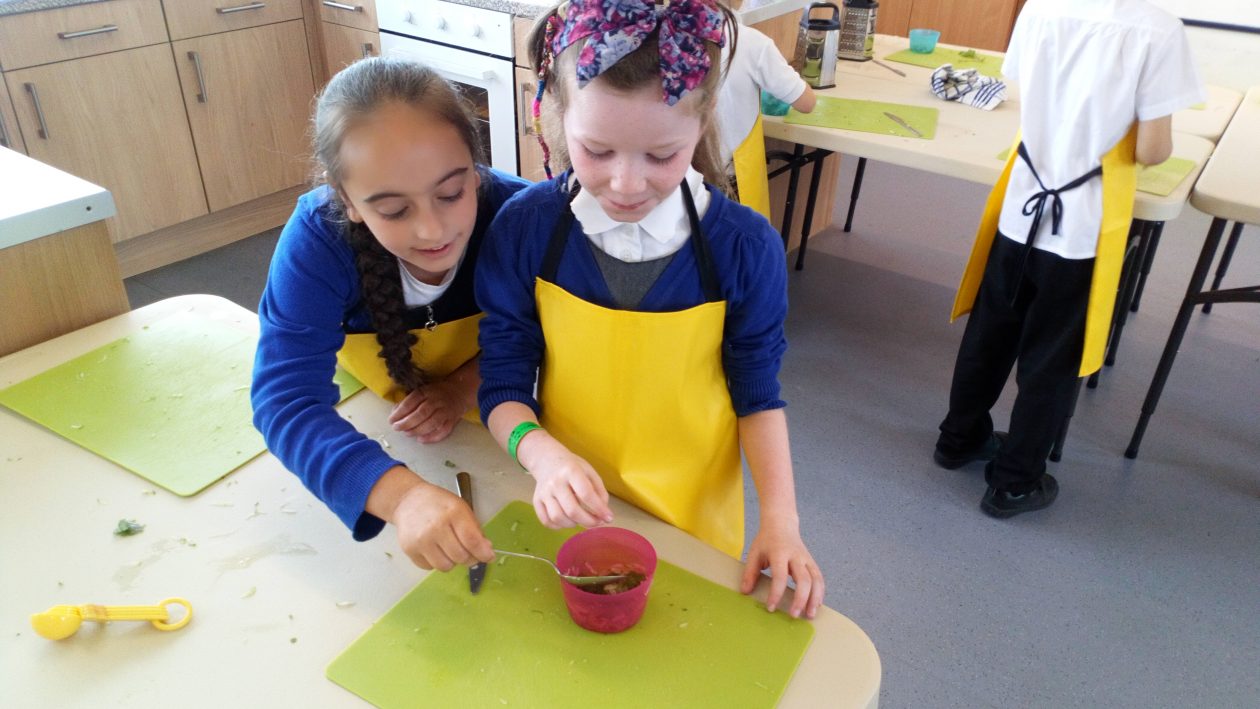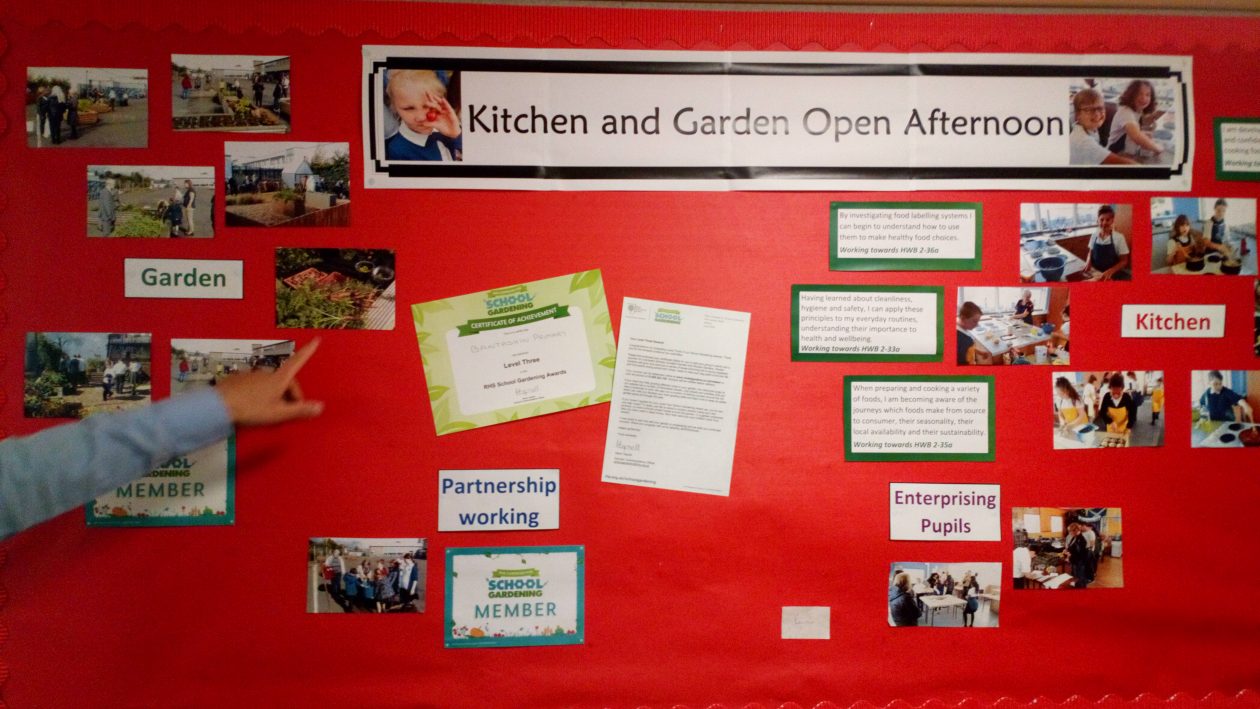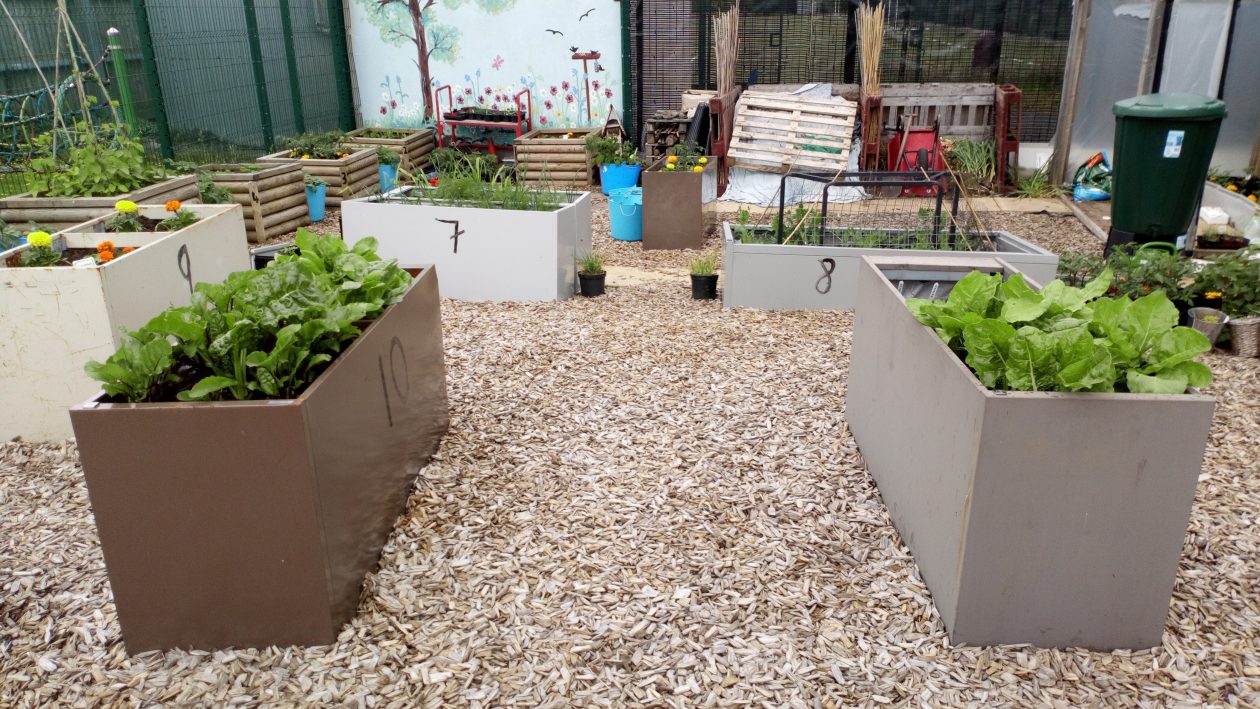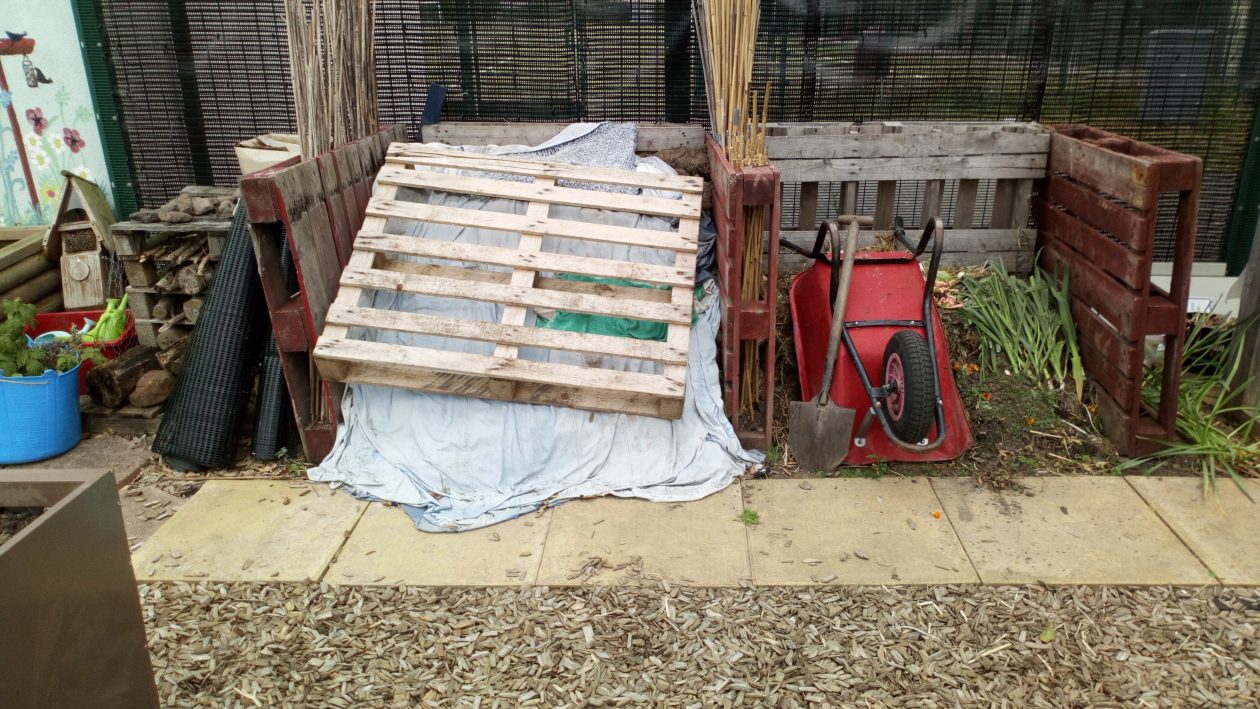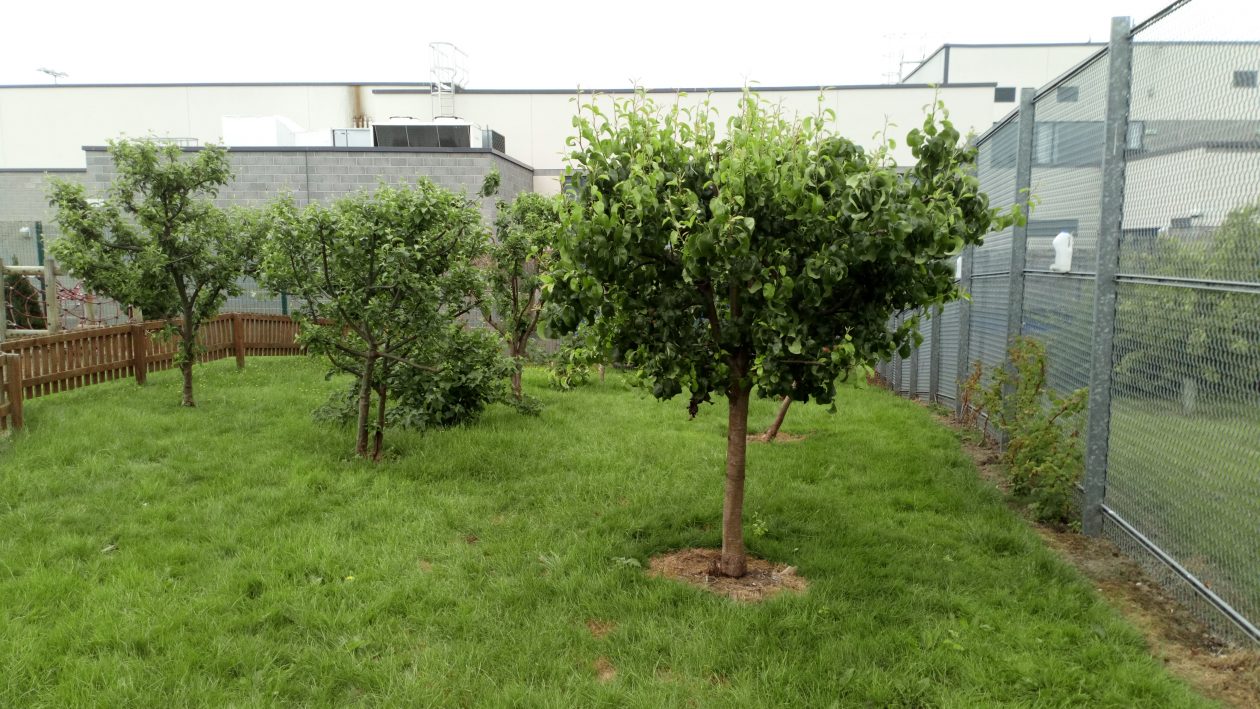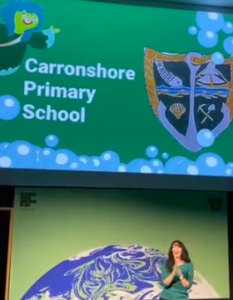 Staff and pupils at Carronshore PS have been learning about climate change recently. A group of pupils were lucky enough to go to Glasgow and attend a session at the Science Centre during Cop 26. They shared their experience with their whole school at assembly, and this blog post is written using their words. Click here to watch their Twitter video.
Staff and pupils at Carronshore PS have been learning about climate change recently. A group of pupils were lucky enough to go to Glasgow and attend a session at the Science Centre during Cop 26. They shared their experience with their whole school at assembly, and this blog post is written using their words. Click here to watch their Twitter video.
Oliver explained that there was a virtual experience at Cop 26.
“We put on a virtual reality headset and saw lots of children. There was a lot of litter on the floor. It was showing what is happening to our planet and our environment. They were carrying a lot of bags and they were full of crisp packets, cans, plastic bottles and clothes.
We need to take more care of our community and area. Rubbish was blasting through the air, going into the ocean.
The children left the rubbish and went away because the rubbish bins were full. We need to get more bins and continue to keep picking up rubbish and recycling it.
I also learned about sea levels rising because the climate is changing rapidly. This is because of ice falling into the seas and melting in the water. This is causing floods and islands are getting swallowed by the rising seas.”
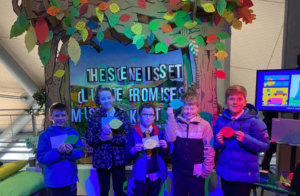 Liam told everyone about the tree of promises.
Liam told everyone about the tree of promises.
“At Cop 26 we added our very own promises to the tree of leaves. Jordan promised to walk more. Ava promised to recycle more. Lila promised to use less energy, and Ben promised to park+ stride more.
All the promises were taken to the blue zone to let the global leaders know what promises we want them to make and keep. That gave us an idea. We think each area could make their own tree of promises. We want to see you all getting involved.”
Lily May told everyone that “Tim Peake the famous astronaut was visiting Cop 26 a few days later. There was a chalkboard where we could leave some questions for him. I asked if climate change affects space. Some of our pupils told a news reporter what Cop 26 means to them. You can see them on our Twitter feed.” LInk here.
Jamie thought “at first that we wouldn’t be able to do it but if we start now we can work together. We might be able to do it by 2023. If the adults get rid of the buildings we don’t need, the young ones can grow plants which will absorb the CO2.”
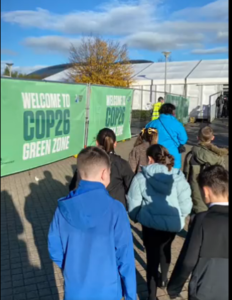 Corey shared that “Since I have been at Cop 26 I have thought about how the world has started to go green and battle climate change. It is also good that the world leaders are starting to listen to lots of young people. At Cop 26 there were lots of people trying to make a change which is very good to see and gives us lots of hope. Even though one person can’t make a change, a lot could.”
Corey shared that “Since I have been at Cop 26 I have thought about how the world has started to go green and battle climate change. It is also good that the world leaders are starting to listen to lots of young people. At Cop 26 there were lots of people trying to make a change which is very good to see and gives us lots of hope. Even though one person can’t make a change, a lot could.”
Staff and pupils at Carronshore use regular Talking Circle meetings to think about what their Cop 26 legacy could be. At the last Talking Circle they discussed how they could make a difference at Carronshore, and identified these three focus tasks:
1. Meat Free Mondays
2. Recycled Water Bottles
3. Waste free packed lunches.
The assembly closed with the following call to action for everyone at Carronshore PS
“We are hoping that each area will take on one of these campaigns. Our Captains, Prefects and P7 Assistants will be on hand to support you in making a difference. Working together we can do our bit NOW to help protect our planet for the FUTURE.” 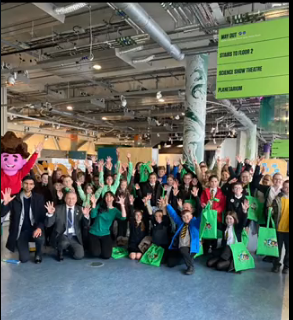

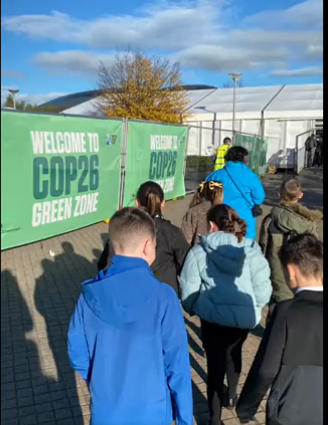
 In August 2017 Alistair Findlay, acting principal teacher at Bantaskin PS began to work with primary 5, 6 and & 7 pupils on a “Good Food” project. This project developed from recommendations in the Better Eating, Better Learning document and was instigated by findings from the Healthy Living surveys which take place each year. Evidence from the 2017 survey showed that only 30% of primary 5-7 children were eating fruit daily, and only one fifth of pupils ate vegetables daily.
In August 2017 Alistair Findlay, acting principal teacher at Bantaskin PS began to work with primary 5, 6 and & 7 pupils on a “Good Food” project. This project developed from recommendations in the Better Eating, Better Learning document and was instigated by findings from the Healthy Living surveys which take place each year. Evidence from the 2017 survey showed that only 30% of primary 5-7 children were eating fruit daily, and only one fifth of pupils ate vegetables daily.